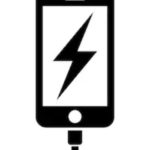Welcome! On Tuesday, we launched this series to share ways in which we can tap into our social and emotional power using the 5 Square in order to help us all collectively live into our potential through the Covid-19 pandemic and beyond.
As leadership coaches who use the power of emotional intelligence to help support organizational leaders and teams thrive during challenging times, we are applying our expertise to the most important teams in all of our lives—our families. Now is an especially important time to be collaborative and to ensure that we set ourselves and each other up for success every day.
Today we will begin to explore our own self-awareness around the idea of resilience. Our own self-awareness around how we recharge and nurture our own resilience as parents and partners will help set the tone for others in our families over the coming weeks and beyond. Today’s practice will help set us up to guide our families in a similar practice (on the next part of this series!).
What is resilience and how can we nurture it in ourselves?
Resilience is our ability to bounce back from setbacks and failures big and small. Our capacity for resilience is like a cell phone’s ability to recharge its battery. One way we measure a cell phone’s performance by how long the battery stays charged and how fast it recharges. Similarly, the greater our capacity for resilience, the more effectively we can manage and the faster we can bounce back when we experience setbacks.

How do we nurture resilience?
We all already have developed some level of resilience and some strategies for emotional recharging. However, the new stresses of social distancing, remote work and school, and living within the uncertainty and anxiety around the current pandemic context will test our capacity for resilience in new ways.
The good news is that the more intentionally we live into the practices that recharge our batteries, the happier, healthier and more successful we will be. One of the most helpful models we have found for nurturing resilience was developed by Michele Nevarez, CEO of Goleman EI.
Life Path refers to how we recharge our ethical and spiritual batteries. It includes living from the values and beliefs that ground us and inspire how we want to show up in the world. Examples include service to others, meditation, and prayer.
Well-being refers to how we recharge our physical batteries. This includes things like sleep, food, and exercise.
Relationships refer to recharging our social batteries. This includes connecting to the people in our lives that fill our hearts.
Self-Expression refers to recharging our passion batteries. This includes engaging our talents in the activities that we love to do, like hobbies, the arts, and sports.
Together these drivers are the power source that recharges our resilience batteries and helps us bounce back from setbacks.
Self-Awareness Application:
Take a moment to ask yourself:
- How well do I manage and bounce back from setbacks? Reflect on some past examples in your life.
- In what ways do I nurture my own resilience through the motivational drivers?
As you go about your life in the next few days:
- What do you notice about your own resilience and ways in which you nurture it? Where do you identify areas for yourself to grow?
- What might you need from those around you to support and nurture your resilience?
- What might you contribute to those around you to support and nurture their resilience?
We will continue to apply the lens of resilience and the motivational drivers in the next post in this series as we share ways in which we can apply these ideas in practice with our families.
To learn more about resilience, you can enroll in this free (until April 17, 2020) online resilience program from Goleman EI.
